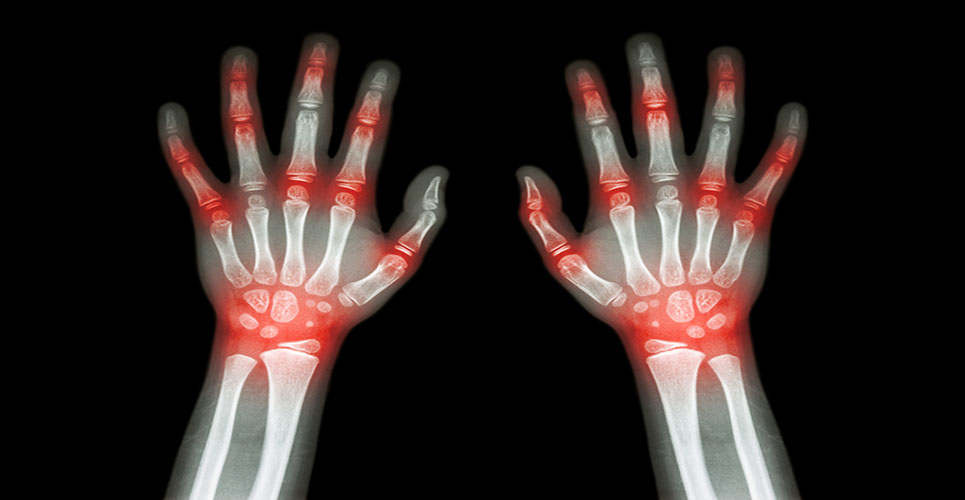teaser
UCB announced results from a post hoc analysis of the RAPID 2 study, published in the Annals of Rheumatic Diseases, which showed Cimzia®, the only approved PEGylated anti-TNF, plus methotrexate (MTX) provided rapid relief from a broad range of symptoms associated with the burden of moderate to severe active rheumatoid arthritis (RA). Those adult patients treated with Cimzia® that achieved early responses were found to have an increased chance of achieving longer-term outcomes.
”These data show that when administered with methotrexate, certolizumab pegol offers rapid relief across a broad range of rheumatoid arthritis symptoms and that relatively few patients need to be treated before at least one patient reports clinical benefits from the positive relief the treatment provides” said lead investigator Dr Vibeke Strand, Adjunct Clinical Professor in the Division of Immunology and Rheumatology, at Stanford University, California. ”By assessing patient-reported outcomes at early-stages of treatment we are able to predict late-stage clinical outcomes and treatment benefits for patients, providing great reassurance to both patients and their healthcare professionals.”
PROs were secondary efficacy endpoints in RAPID 2 and were used to measure the impact of treatment with certolizumab pegol versus placebo. Number needed to treat (NNT) analysis was used in these post hoc analyses to interpret the PRO results. The NNT determines the number of patients that need to be treated in order to obtain the benefit of interest in one additional patient; therefore, small NNTs indicate favourable treatment effects. NNTs and minimum clinically important differences (MCIDs, which determine clinically meaningful improvements) were evaluated.
In the RAPID 2 study, patients with active RA (by 1987 American College of Rheumatology [ACR] classification criteria) with inadequate responses to MTX therapy were randomised to receive certolizumab pegol (400mg at weeks 0, 2 and 4 followed by 200mg or 400mg every two weeks) plus MTX, or placebo together with MTX for 24 weeks. The primary outcome measure was ACR 20 response at week 24.

At week 24, significantly more patients in the certolizumab pegol treatment groups reported improvements ≥ MCID in all six PROs (pain, fatigue, patient’s global assessment of disease (PtGA), physical function by HAQ, and HRQOL by SF-36 physical and mental component summary scores). The beneficial effects of certolizumab pegol were similar between the 200mg and 400mg dose levels with no significant difference between treatment groups in any PROs.
Furthermore, at week 24, 63% of certolizumab pegol 200mg treated patients reported clinically meaningful improvements in ≥ 1 PRO compared with 13% in placebo groups, and approximately 23% of all certolizumab pegol treated patients reported clinically meaningful improvements in all six PROs compared with 3% in placebo groups.
The NNT for reported changes ≥ MCID in all six PROs was approximately five patients, and these results showed the highest correlation between pain, PtGA and fatigue. The NNT for reported changes ≥ MCID in up to five PROs was 2–3.
Improvements ≥ MCID in pain were investigated to predict outcomes at week 24. Those patients achieving pain MCID by week 12 were more likely to have better outcomes than those who did not achieve MCID at week 12. Additionally, a comparison of week 6 and 12 responders, showed approximately 27% of patients who reported improvements ≥ MCID in pain at week 6 achieved low disease activity (LDA) at week 24, compared with 16% of week 12 responders.

